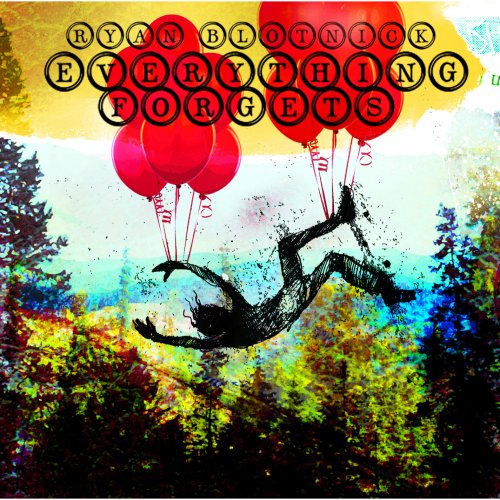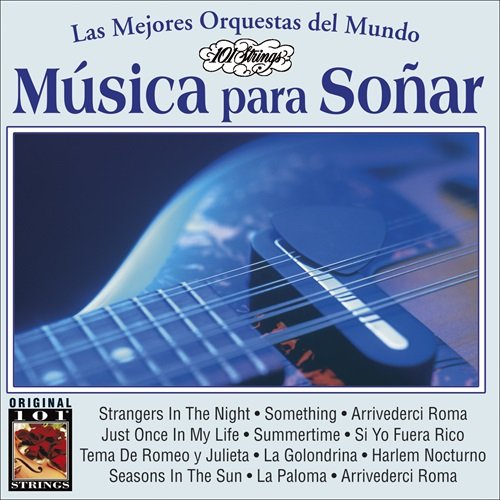Ryan Blotnick - Everything Forgets (2009) [Hi-Res]

Artist: Ryan Blotnick
Title: Everything Forgets
Year Of Release: 2009
Label: Songlines
Genre: modern; creative jazz, fusion
Quality: 16-bit/44.1kHz FLAC; 24-bit/88.2kHz FLAC & booklet
Total Time: 59:31 min
Total Size: 280; 988 MB
WebSite: Album Preview
Since the release of his widely acclaimed Songlines CD Music Needs You in 2007, the New York based guitarist has been performing with Michael Blake Band, Pete Robbins & Centric, and gigging in England and Europe. While there he met the Belgian reed player Joachim Badenhorst, Irish electric bassist Simon Jermyn, and NY drummer Jeff Williams. The impromptu quartet made a mostly free-form demo (“it had this kind of 70s rock vibe mixed with a more modern ‘Icelandic’ soundscape kind of thing,” says Blotnick). When Badenhorst moved to New York last fall, Jermyn came over as well and the quartet did a tour and recording session, focusing on improvs as well as new pieces Blotnick had composed for his NY trio. In early 2009, on tour in Spain with 3/5 of the Music Needs You band (Barcelona-based US drummer Joe Smith and NY bassist Perry Wortman), that trio re-recorded those tunes. This CD selects the best takes from the two sessions and sequences them into two album sides. The lighter, groovier post-jazz trio tracks foreground Ryan’s improvising on his compositions, while the quartet often has a heavier, freer avantrock/new music feel. The alternation sets up a series of contrasts and complementarities that make this a more provocatively organized and musically/emotionally diverse record than Music Needs You. Ryan elucidates:Title: Everything Forgets
Year Of Release: 2009
Label: Songlines
Genre: modern; creative jazz, fusion
Quality: 16-bit/44.1kHz FLAC; 24-bit/88.2kHz FLAC & booklet
Total Time: 59:31 min
Total Size: 280; 988 MB
WebSite: Album Preview
“I listen to a lot of music on vinyl and one of the things I really like is that at the end of a side you are left with this absence of music, and it puts you in touch with the fact that you want (or need) to hear more. Then you have to physically get up and flip the disc and basically say ‘I want some more music now.’ I think this makes the B side that much more interesting, and there is also a certain kind of commitment involved. Usually the A side is more flashy and meant to draw you in, and then the B side is more adventurous. A lot of the music on Everything Forgets is very demanding, so I’ve shortened some of the freer pieces to a minute or two, and offset them with the lighter, more rational trio compositions. When I hear live music I’m content to sit through long pieces with no apparent direction, but I think an album should be more concise and structured. So I organized the music in a way that people could listen to a half hour of intense music and feel like they had completed something, like a chapter. I want people to think of Everything Forgets as two albums really, and maybe even take the time to really absorb Side A before moving on to Side B.”
In Ryan’s liner notes he writes about memory and forgetting and how music moves us: “The process of selecting the best takes, editing and mixing them, and weaving them together to tell a story was an experience not unlike what the brain does as we form memories. Moments in time can’t be repeated in real life; but the ability of music to recreate thoughts, emotions and the feeling of movement through time is truly astounding.” For example: “When the melody is restated after the solos it takes on a new meaning based on what’s been established in the improvised section. This push-and-pull of statement, abstraction (or forgetting), and restatement gives us the sensation of movement in music. It’s the feeling of being brought to a different emotional state, like at the end of a book or movie. But I think this kind of movement is closely related to physical movement and vibration. Music is one of the most subtle types of movement that we can pick up on, and it can be used to evoke other kinds of movement in the brain and in the body. I think good music engages all the different chakras, or energy levels in the body.”
What one especially takes away from Everything Forgets is an appreciation for Blotnick’s melodic gift (both in the writing and improvising), and how this music indeed evokes a range of feelings with grace and humanity. In the interview Ryan acknowledges his indebtedness in different pieces to Sonny Rollins, Benoît Delbecq, Skúli Sverrisson, and friends/colleagues Michael Blake, Bill McHenry, and Eivind Opsvik among others, but his music makes a true statement of its own.
Tracklist:
01. Ryan Blotnick - Intro (0:51)
02. Ryan Blotnick - Mansell (4:30)
03. Ryan Blotnick - Judge's Cave (5:04)
04. Ryan Blotnick - Mainstream I (5:43)
05. Ryan Blotnick - My Memory, Sir, Is Like a Garbage Heap (2:04)
06. Ryan Blotnick - Ballad For a Crumbling Infrastructure (4:44)
07. Ryan Blotnick - Dark Matter (for Benoît Delbecq) (4:19)
08. Ryan Blotnick - Slowdozer (1:58)
09. Ryan Blotnick - Look, a Way! (1:37)
10. Ryan Blotnick - Mainstream II (6:32)
11. Ryan Blotnick - Sulphur, the Reins (2:08)
12. Ryan Blotnick - Funes the Memorious (6:28)
13. Ryan Blotnick - Business Class (4:50)
14. Ryan Blotnick - Cloud Stove (2:03)
15. Ryan Blotnick - Ned Ferm (4:50)
16. Ryan Blotnick - Sonny Song (1:50)


![Mammal Hands - Circadia (2026) [Hi-Res] Mammal Hands - Circadia (2026) [Hi-Res]](https://www.dibpic.com/uploads/posts/2026-02/1771945393_folder.jpg)




![Ex Novo Ensemble - Claudio Ambrosini: Chamber Music (2020) [Hi-Res] Ex Novo Ensemble - Claudio Ambrosini: Chamber Music (2020) [Hi-Res]](https://img.israbox.com/img/2026-02/22/z541qb9ul4q390uxlw1d9iak3.jpg)
